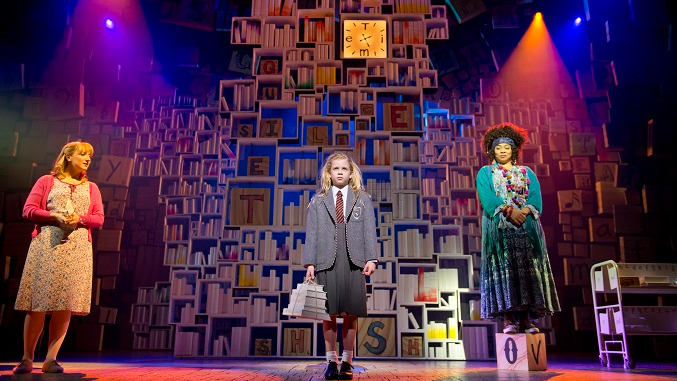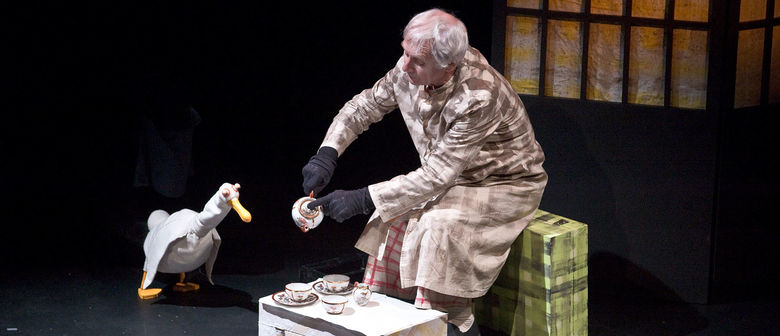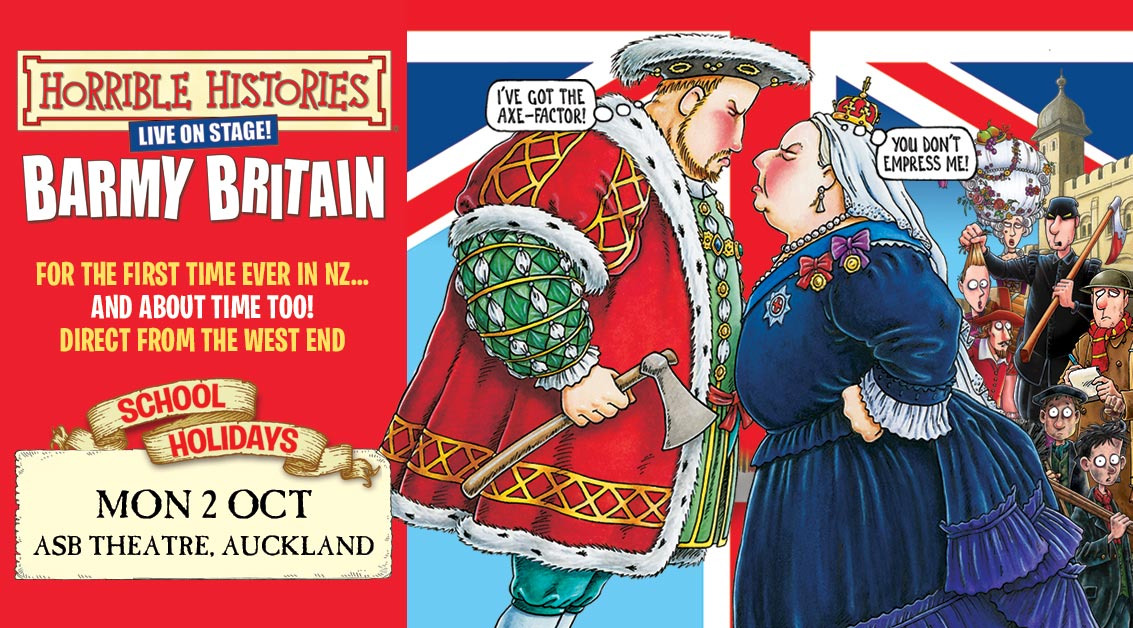Children’s Theatre expert and teacher Robert Dil writes about the joy of seeing your favourite book on stage, the history of the connection from page to stage, and how theatre can be used to benefit literacy learning.

The best stories ignite our imaginations and allow us to see the world through different eyes. This happens through quality children’s literature and theatre, and should happen for both the young and young at heart. C.S Lewis said, ‘A children’s story that can only be enjoyed by children is not a good children’s story in the slightest.’
Theatre has the power to inspire the imagination, much like reading a book, but there is additional magic at play in live performance. Books are the ancient art of storytelling captured on the page to be read aloud and theatre is storytelling brought to three-dimensional life – there for a moment and then a glimmer in the memory. It is like stepping into the world of the book itself. There is nothing like live theatre: the immediacy of the actors interacting and connecting with the audience, the visual aesthetic of seeing favourite characters on the stage, the energy you feel upon entering the theatre or performance space itself, and the addition of sound, sets and lighting, to enhance the storytelling experience.
… Theatre is storytelling brought to three-dimensional life … It is like stepping into the world of the book itself.
US playwright Lauren Gunderson agrees – in a 2012 Huffington Post article, she declared that theatre for young people could save the world. She asserts ‘If you take a child to the theater, not only will they practice empathy, they might also laugh uproariously, or come home singing about science, or want to know more about history, or tell you what happened at school today, or spend all dinner discussing music, or learn how to handle conflict, or start becoming future patrons of the arts.’
Children’s theatre has a long history of taking the best of children’s literature and adapting it for the stage. The UK is the motherland of western children’s literature brought to the stage. At the time of writing, in the realm of mainstream musical theatre alone, London hosts the Queen’s bounty with children’s novels and picture books including Kenneth Grahame’s The Wind and the Willows; Roald Dahl’s Matilda; and Julia Donaldson’s What the Ladybird Heard, all showing in London’s West End. Roald Dahl’s Charlie and the Chocolate Factory is also making a splash on Broadway in New York. Children’s books are clearly regarded as a valuable source of musical inspiration internationally: and here in New Zealand our theatre creators see them the same way.
The Kiwi Scene
Here in New Zealand, much of our theatre for young people is created in our community and regional professional theatres. There are boutique-style touring groups like Little Dog Barking, based in Wellington, who present picture adaptations among their repertoire such as their award-winning Duck, Death and the Tulip (based on the book by Wolf Erlbruch) and their current production, which is based on Mem Fox’s Wilfred Gordon McDonald Partridge.

And Auckland’s Tim Bray Productions celebrated 25 years of quality children’s theatre in 2016. Bray, who was recently awarded a QSM for his services to children’s theatre, adapts many New Zealand children’s books for the stage. These have included Lynley Dodd’s Hairy Maclary From Donaldson’s Dairy; Joy Cowley’s Mrs Wishy-Washy and Witi Ihimaera’s The Whale Rider.
He says, ‘It’s great to be able to bring our own stories to life and honour our local authors who are internationally renowned. These stories are so loved by our audiences and they love seeing them live on stage. We do present overseas authors such as Roald Dahl, Astrid Lindgren and Beatrix Potter but our focus has always been on New Zealand stories.’
‘It’s great to be able to bring our own stories to life and honour our local authors who are internationally renowned...’
I was invited to bring my young family to Tim Bray’s July school holidays production of Margaret Mahy’s The Great Piratical Rumbustification and this marvellous play proved that New Zealand’s children’s literature certainly has an outlet to bring our books to the stage with the appropriate magic!
Theatre and its relationship with literacy
Duffy Books in Schools make use of theatre to support literacy and reading. They have their own theatre company that travels the country in teams of two inspiring the kids of Aotearoa to read. Duffy understands the power of theatre in promoting reading, entertaining the young to engage with their message and creating lifelong learners, and their programme reaches over 500 schools a year.
Duffy’s programmes focus on schools from lower socio-economic areas where kids are less likely to own their own books – performing to these children, as well as providing free books. I saw firsthand the joy the kids feel in owning their own book when I taught in a ‘Duffy’ school.
The Big Shows
Then of course there are the international touring shows that visit the main cities. Auckland is having quite the feast of children’s literature adapted for the stage in 2017. There was the Australian touring production of Andy Griffith and Terry Denton’s The 13-Storey Treehouse in April, which used a lot of imagination to fill in the blanks of what could have been a very expensive spectacle. The live stage adaptation of Eric Carle’s The Very Hungry Caterpillar, acclaimed from Sydney, New York and London wowed audiences this past July with its breathtaking puppetry. This is one of the best children’s theatre plays I have ever seen and, with the volume I have seen, that is saying something. It felt like I was experiencing individual pages from Eric Carle’s books. The Horrible Histories book series will also be exciting to see live on stage, direct from the West End, this October.

Auckland’s The Civic Theatre on Queens Street is hosting the highly anticipated musical, Roald Dahl’s Matilda, which opened recently. At the press night for this show, composer and lyricist for the show Tim Minchin, shared that when originally interviewing for the job with director, Matthew Warchus, Minchin told him, ‘Even if you don’t hire me, don’t f*ck it up. Dahl is the backdrop to my childhood.’ The show certainly doesn’t disappoint, and the story told is truly inspirational.
Inspiring stories are the answer to a world that often feels increasingly difficult. They open our minds, take us on new journeys, and allow us to see the world through other eyes. Stories can save us both on the page and the stage.
Children’s Theatre around New Zealand for the October school holidays:
Matilda, The Civic Theatre Auckland, until 22 October 2017
Mrs Wishy Washy, The Pumphouse, Takapuna, 25 September-14 October 2017
Horrible Histories: Barmy Britain, touring nationwide September – October 2017. Hamilton 30 September, Auckland 1-2 October, New Plymouth 4 October, Wellington 7 October, Napier 10 October, Christchurch 14 October, Dunedin 15 October 2017.
Wilfred Gordon McDonald Patridge, Wellington region, 4, 5, 10, 12 October 2017
Robert Dil
Robert is a performing arts specialist who teaches Musical Theatre at Takapuna Grammar School, on Auckland’s North Shore. He holds a Masters degree in Drama and Theatre for Young People with Distinction. A highlight of his work is staging children’s theatre with his high school students and then taking these productions off-campus to local primary schools. He has also written and directed professionally for the stage with former NZ children’s entertainment group, The Polkadots. Robert is married with three young children ages eight, six and two.



